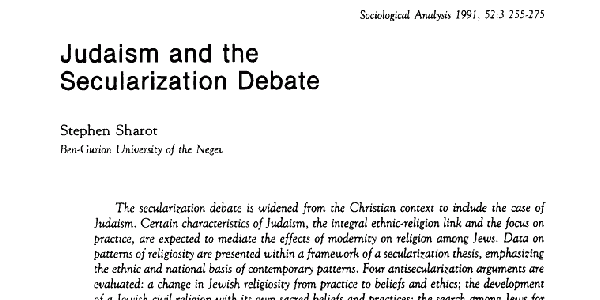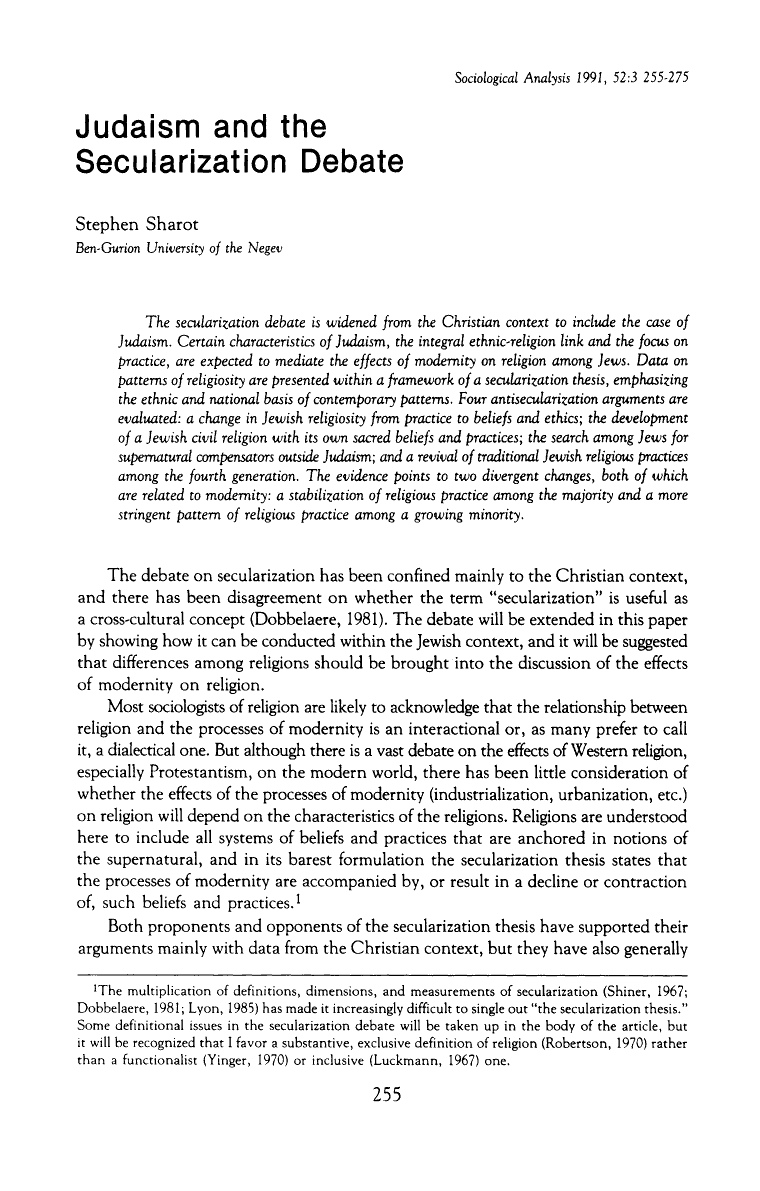Judaism and the Secularization Debate
01/10/1991 | Na stronie od 12/01/2023

Source: JSTOR
Judaism and the Secularization Debate
Stephen Sharot
Ben-Gurion University of the Negev
- Sociological Analysis
- Vol. 52, No. 3, International Studies in the Sociology of Religion (Autumn, 1991), pp. 255-275 (21 pages)
- Published: 01 October 1991
Abstract
The secularization debate is widened from the Christian context to include the case of Judaism. Certain characteristics of Judaism, the integral ethnic-religion link and the focus on practice, are expected to mediate the effects of modernity on religion among Jews.
Data on patterns of religiosity are presented within a framework of a secularization thesis, emphasizing the ethnic and national basis of contemporary patterns. Four antisecularization arguments are evaluated: a change in Jewish religiosity from practice to beliefs and ethics; the development of a Jewish civil religion with its own sacred beliefs and practices; the search among Jews for supernatural compensators outside Judaism; and a revival of traditional Jewish religious practices among the fourth generation.
The evidence points to two divergent changes, both of which are related to modernity: a stabilization of religious practice among the majority and a more stringent pattern of religious practice among a growing minority.
More:JSTOR

More:JSTOR
Publisher Information
Oxford University Press is a department of the University of Oxford. It furthers the University's objective of excellence in research, scholarship, and education by publishing worldwide. OUP is the world's largest university press with the widest global presence. It currently publishes more than 6,000 new publications a year, has offices in around fifty countries, and employs more than 5,500 people worldwide. It has become familiar to millions through a diverse publishing program that includes scholarly works in all academic disciplines, bibles, music, school and college textbooks, business books, dictionaries and reference books, and academic journals.
Rights & Usage
- This item is part of a JSTOR Collection.
- For terms and use, please refer to our Terms and Conditions
- Sociological Analysis © 1991 Association for the Sociology of Religion, Inc.
- Request Permissions